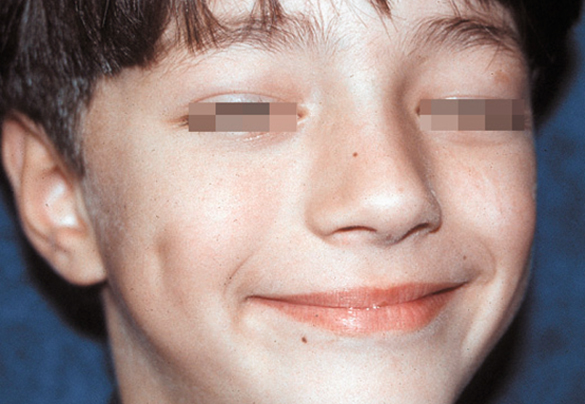Post-inflammatory dimples of the face.

Downloads
DOI:
https://doi.org/10.26326/2281-9649.30.1.2087How to Cite
Abstract
The dimples of the face are usually physiological and seem to be related to the presence of a double major zygomatic muscle; the lower bundle of the muscle is often connected with the dermis and this determines the traction of the skin when the subject smiles (4). The physiological dimple of the face is considered an esthetic advantage and this is the reason why there are different techniques (1, 2) to create it surgically.
Pathological dimples of the face may be secondary to congenital diseases, infections, trauma (4) or tumors, as case 2 demonstrates. The mechanism by which the dimple is formed is an adhesion between the skin and the underlying planes, that is evidenced by the contraction of the mimic muscles. The adhesion is likely formed following an important inflammation. When the latter regresses without scar, the dimple will regress when the inflammation resolves; vice versa the dimple will be definitive in case of scar. In case 2, a granulomatous inflammation secondary to pilomatricoma was likely to have caused adhesion and dimple formation.
